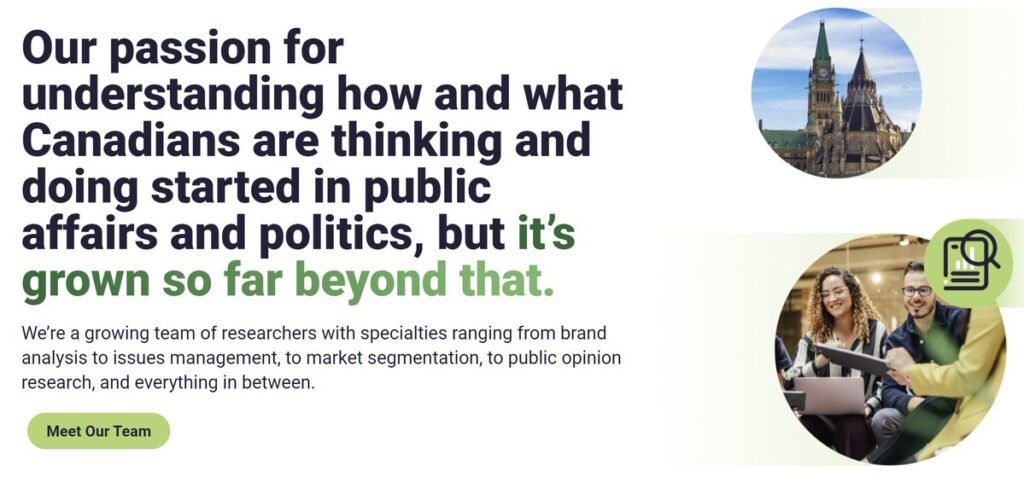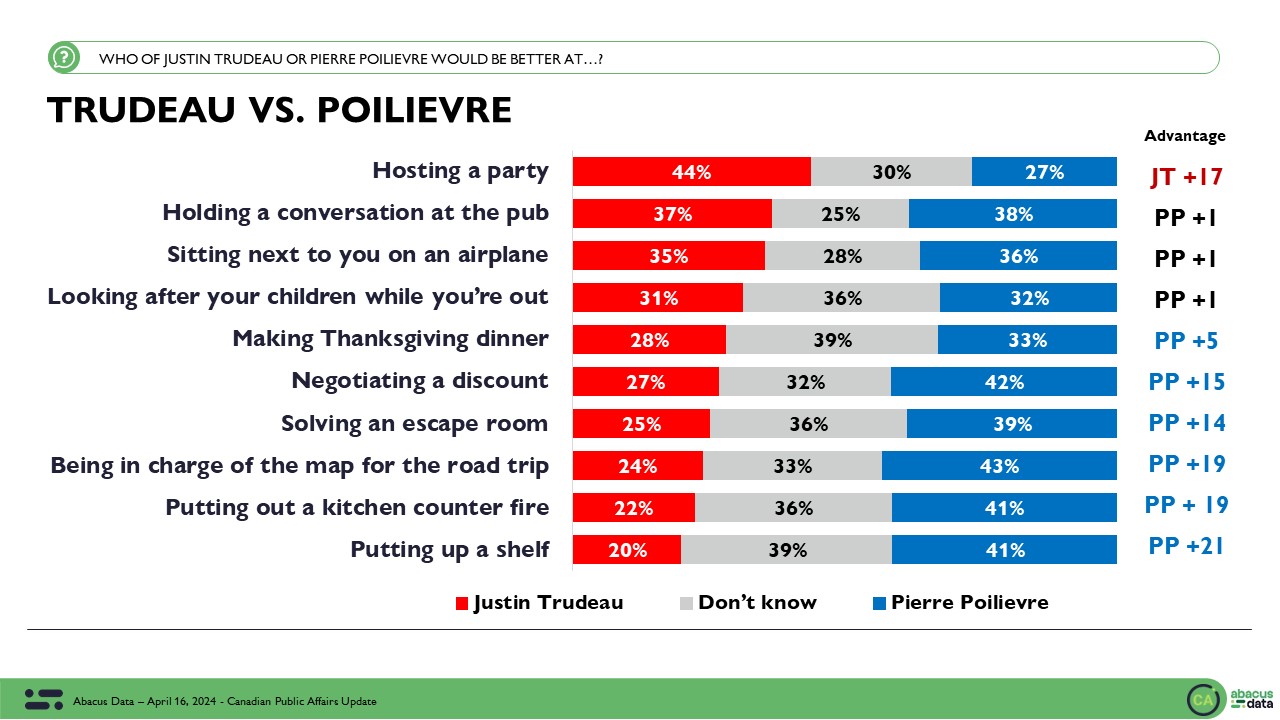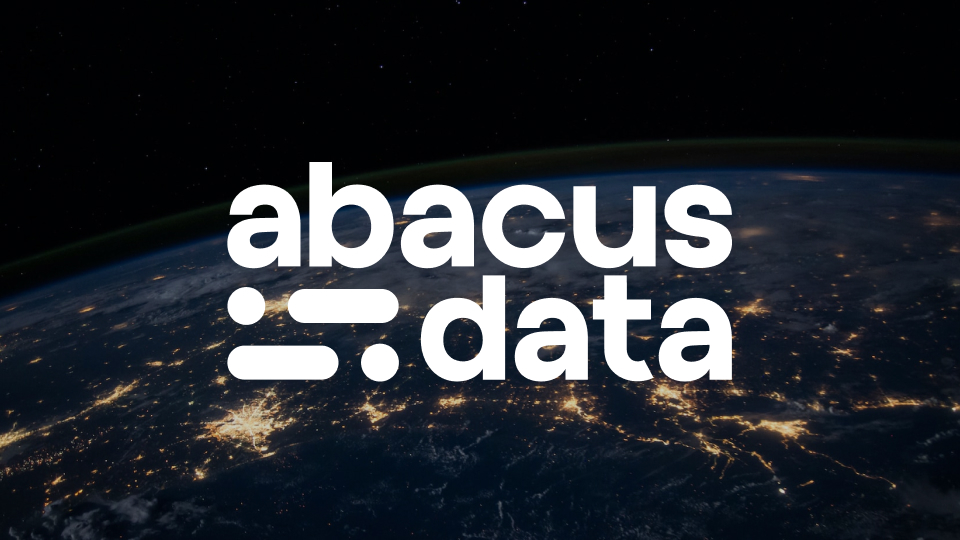Conservatives open up a 19-point lead over the Liberals.
February 11, 2024
From February 1 to 7, 2024, Abacus Data conducted a national survey of 2,398 adults exploring several topics related to Canadian politics and current events as part of our regular national omnibus surveys.
Conservatives lead by 19 over the Liberals, tied for the largest national lead we’ve ever measured for the Conservatives.
If an election were held today, 43% of committed voters would vote Conservatives with the Liberals at 24%, the NDP at 18% and the Greens at 4%. The BQ is at 34% in Quebec.
Since our last survey, the Conservatives are up 3, the Liberals down 1, the NDP down 2 and the Greens down 1.
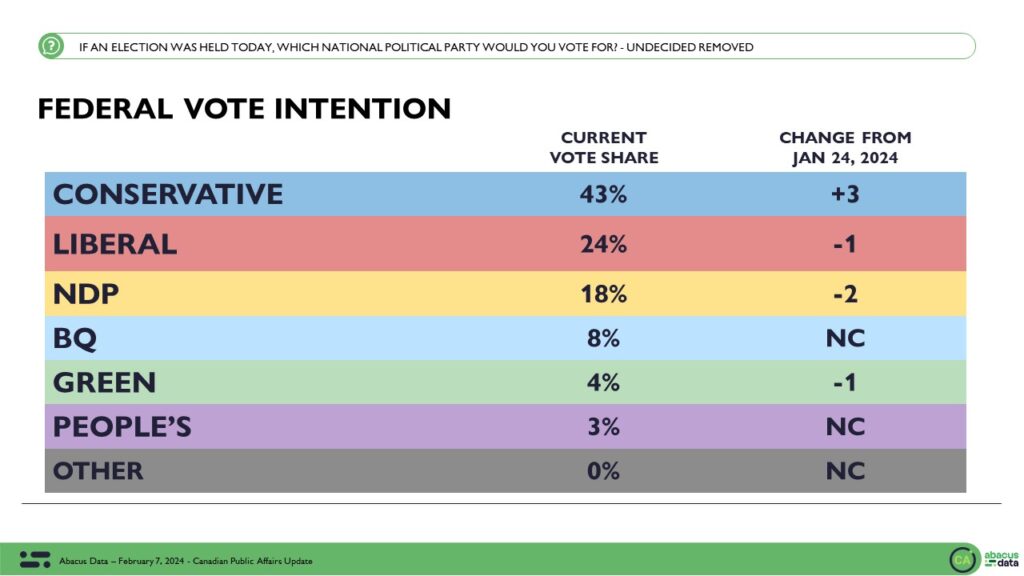
Regionally, the Conservatives are well ahead in the Prairies, lead by 22 in BC, and 14 in Ontario. In Atlantic Canada, the Conservatives are 16-points ahead of the Liberals while in Quebec, the BQ leads by 8 over the Conservatives who are statistically tied with the Liberals.

If we isolate British Columbia, Ontario, and Atlantic Canada only, we find the Conservatives up 2 and the Liberals unchanged from our last survey in January across these three regions/provinces.

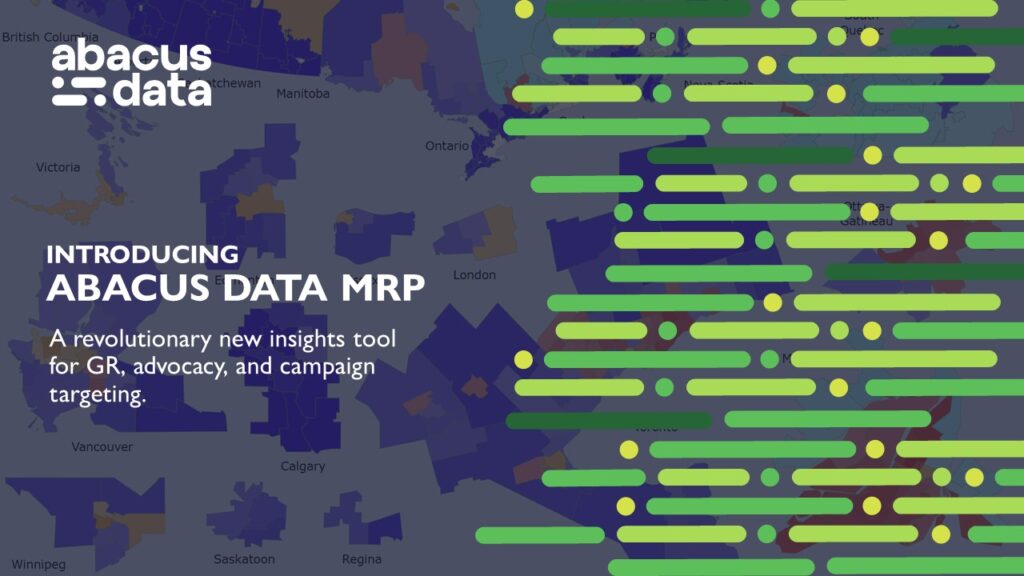
Demographically, the Conservatives lead among all age groups with the Liberal vote share correlated with age. The Liberal vote share rises as the age of the respondent increases. The opposite is true for the NDP. For a deeper analysis of how younger Canadians have soured on the Liberals, check out my Substack.

Men are 9-points more likely to vote Conservative than women and 5-points and 9-points less likely to vote Liberal and NDP respectively.

When we ask people if they would consider voting for each of the main political parties, 54% say they are open to voting Conservative (up 3 since last month) while, 41% are open to voting NDP (down 2), and 40% are open to voting Liberal (down 2) and the lowest we have measured for the Liberals since they were elected in 2015.
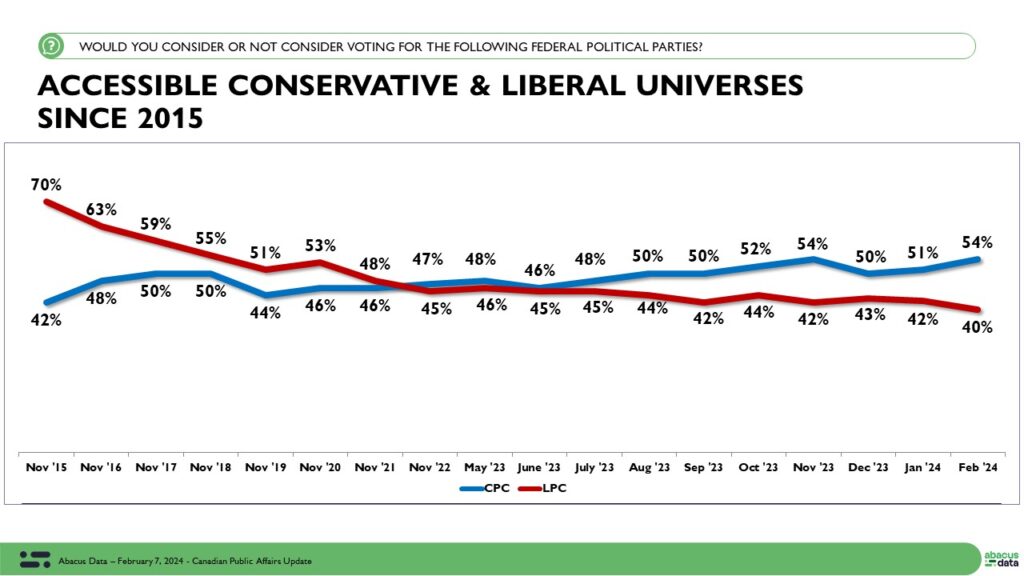
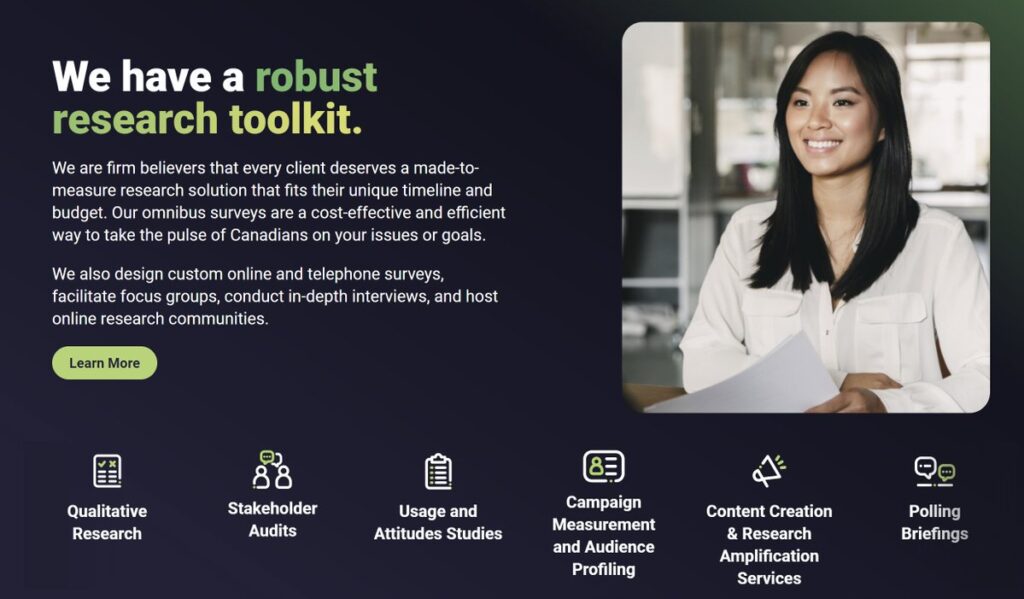
We continue to measure voter motivation by political party.
We find that Conservative supporters are more likely to say they would vote than Liberal or NDP supporters. The enthusisiam gap has closed a bit between Conservative and Liberal voters – down 3 to 10 this wave.
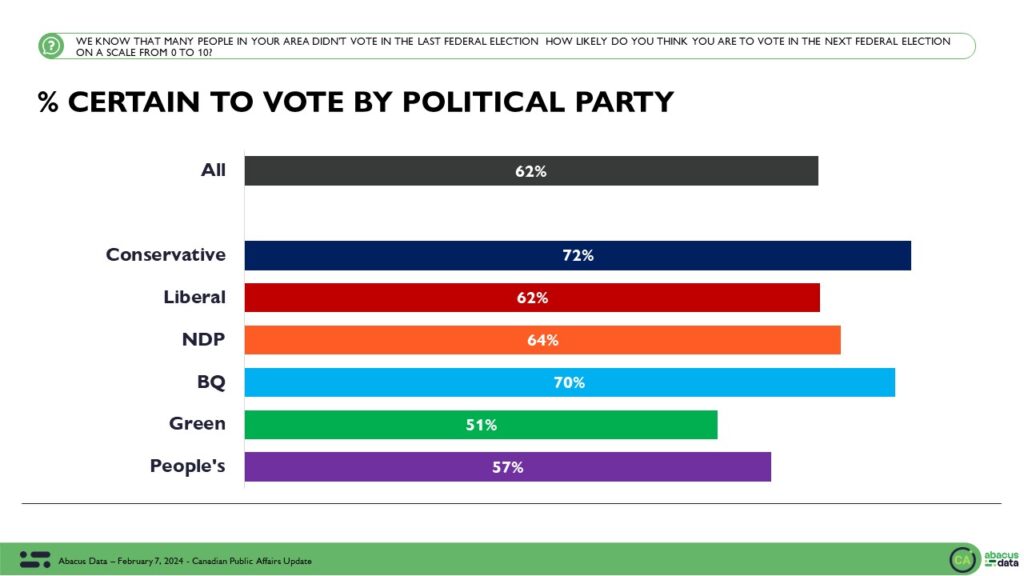
What else are Canadians thinking?
The mood of the country remains decidedly negative. Today, only 1 in 4 think Canada is headed in the right direction and only 17% feel optimistic about the direction of the country. This mood continues to be very sour.
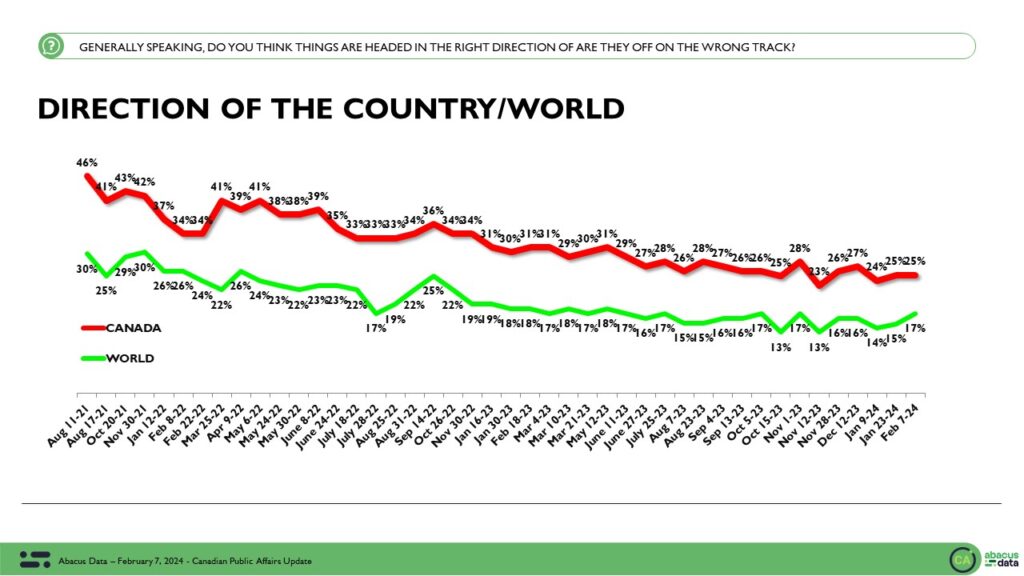
The federal government’s approval rating is down 4-points from last month to 24%, the lowest we have measured since the Liberals were elected in 2015. 59% disapprove of the job performance of the federal govenrment led by Justin Trudeau.
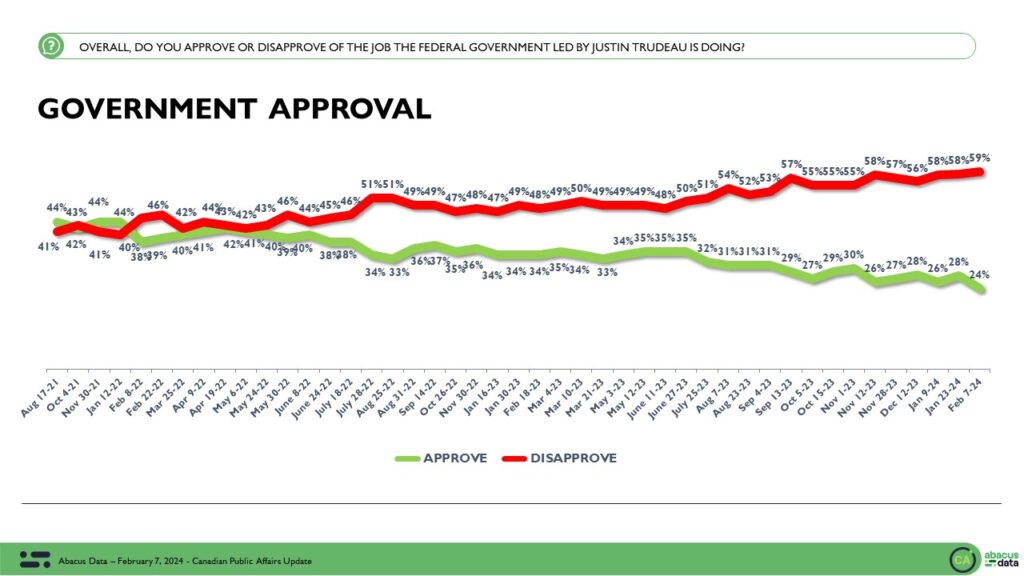
Impressions of Justin Trudeau are unchanged. 57% have a negative impression of the Prime Minister and 24% have a positive view for a net score of -33.
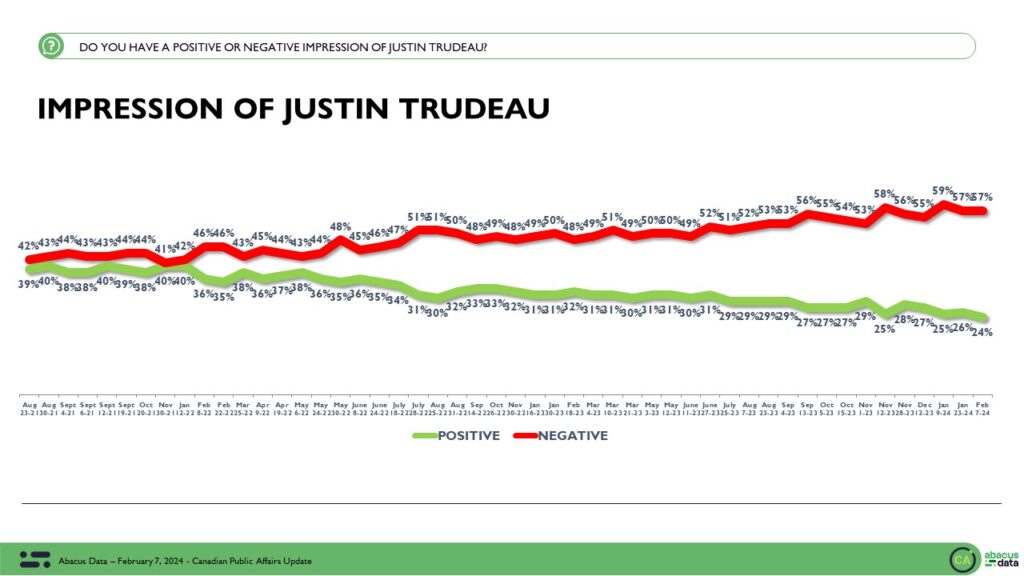
In contrast, impressions of Pierre Poilievre are also unchanged with 38% viewing him positively and 36% negatively for a net score of +2. Any attempts by the Liberals to weaken Poilievre have not had any impact as of yet.
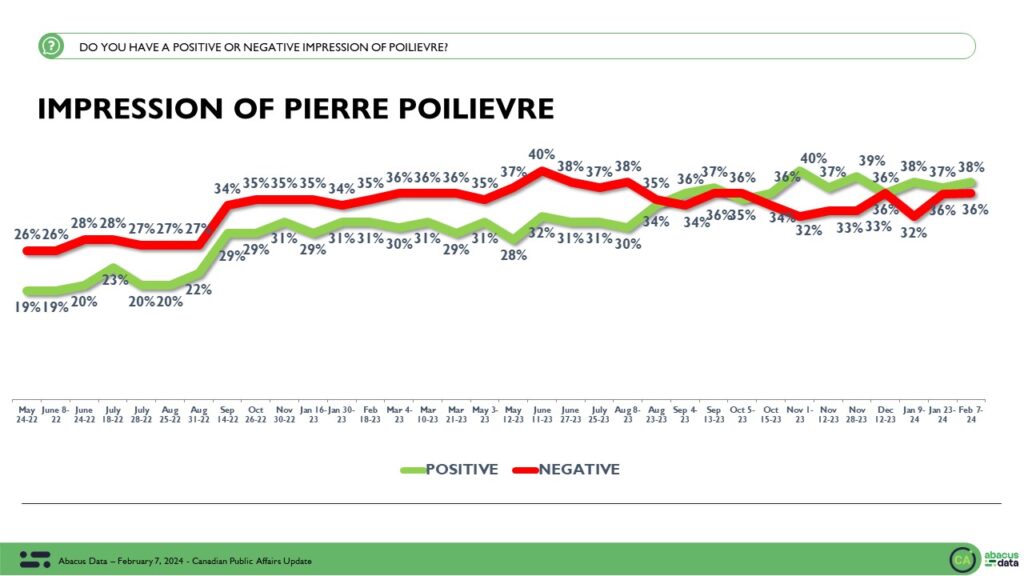
Feelings about NDP Leader Jagmeet Singh are largely unchanged. Today 34% have a negative impression compared with 33% who have a positive one for a net score of –1.
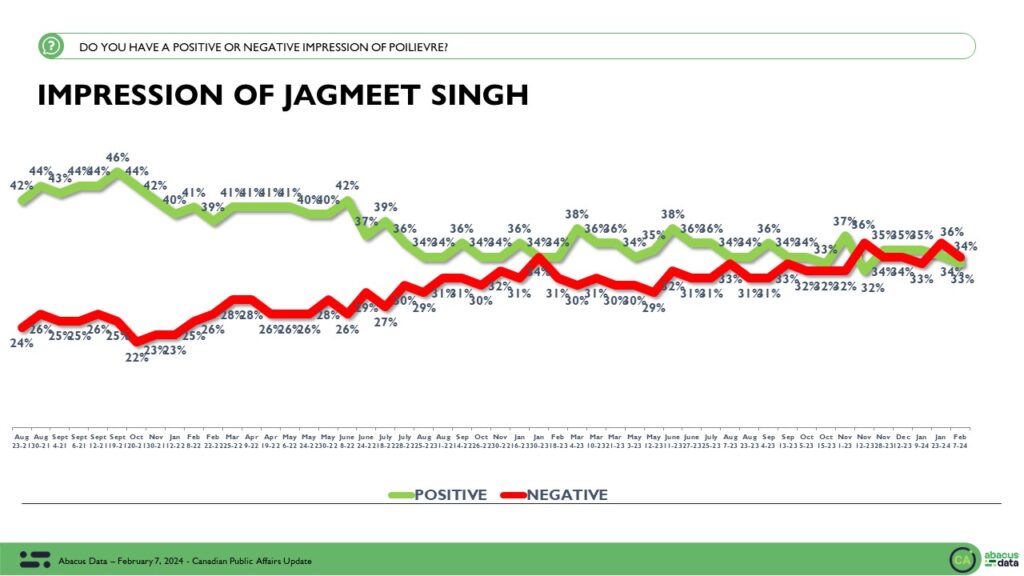
Only 14% of Canadian adults believe Justin Trudeau and the Liberals deserve to be re-elected. That number has been flat and unchanged since September and is down 7 points from the first time we asked it at the end of June – the last poll before we saw a big shift in voter intentions towards the Conservatives.
Those who say it’s time for a change in government and feel there’s a good alternative to the Liberals is down slightly to 52% but the Conservatives have consolidate more of the change vote gaining 4 points among solid change voters and 4-points among those who want change but don’t feel there’s a good alternative.
It is worth noting that Quebec stands out from the rest of the province when it comes to their views on change and the alternatives.
Outside of Quebec, 56% of Canadians think it’s time for a change and there is a good alternative to the Liberals. In Quebec, that number is only 38%.
In contrast, 45% of Quebecers say it’s time for a change but there isn’t a good alternative to the Liberals, 15-points higher than in the rest of the country. Among this almost half of the Quebec electorate, the BQ gets 49% of the vote to 27% for the Liberals and 12% for the Conservatives. If the Conservatives are going to make more gains in Quebec, they will need to convince this group – who want change – that they are a safe and acceptable option.
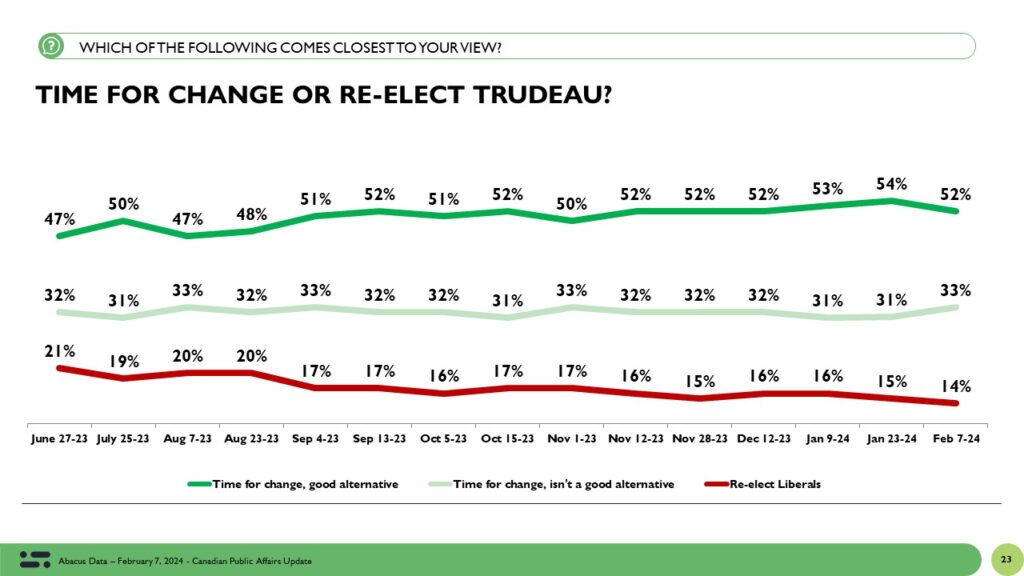
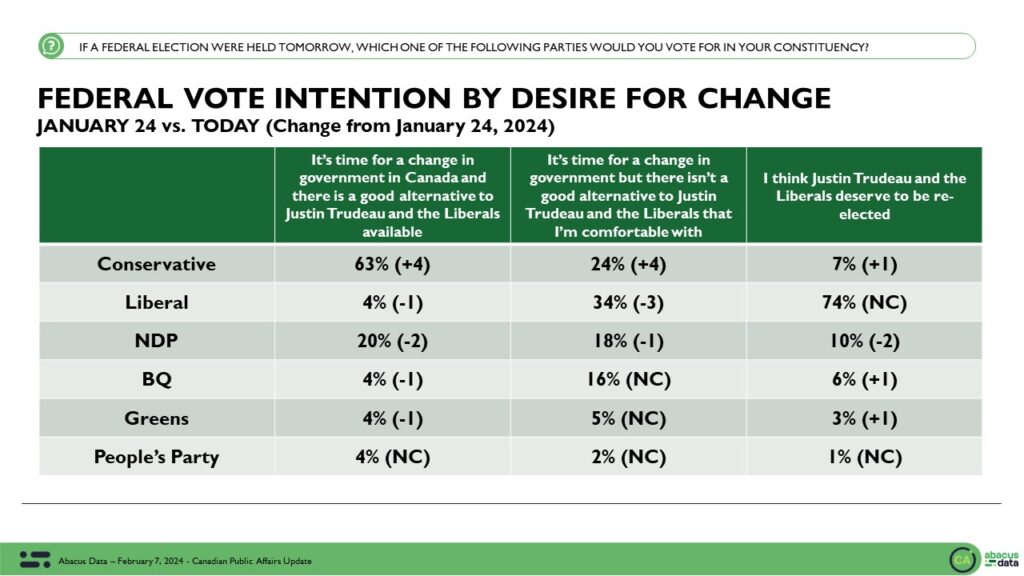
What Canadians feel are the top issues facing the country are fairly stable althoughhousing affordability is down 5-points and now tied with healthcare as the second most salient issue. The economy is up 3 while crime and public safety is up 2 (likely due to the focus on auto theft).
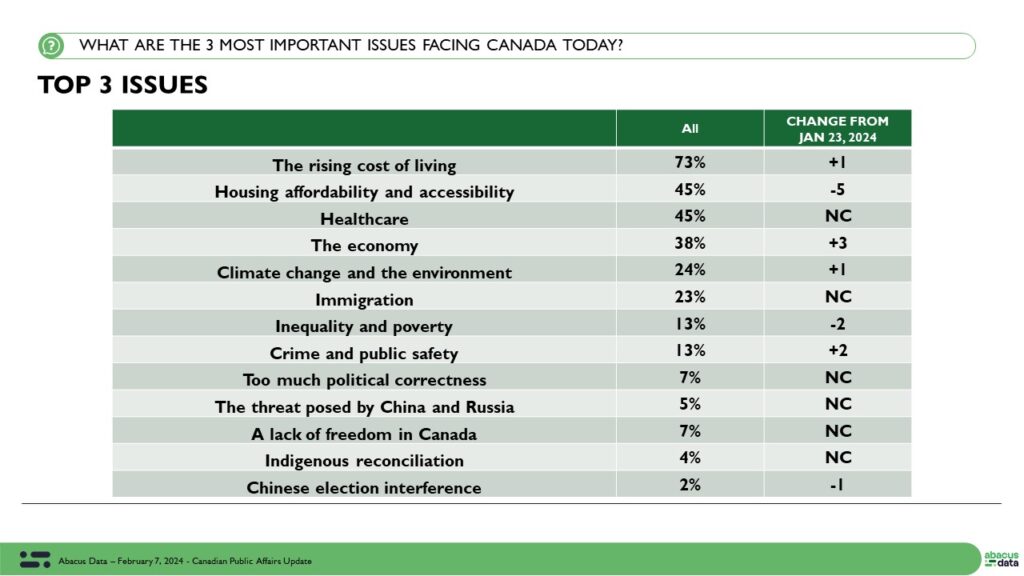
In this survey we asked Canadians to what extent different words or phrases describe the current Liberal government led by Justin Trudeau. My goal was to understand whether there is any variation in how people see the government. Overall, the results are not very positive.
But when we drill down and look at the 250 respondents in our survey who say they voted Liberal in 2021 but today are either undecided or voting for another party (Liberal switchers), the story becomes a bit more clear. Clear majorities, and at times large majorities, don’t feel that any of the positive descriptions apply to the Liberal government. For example, 69% think that “transparent and accountable” describes the Trudeau government “not at all” or a “a little”. 64% don’t think it’s focused on the right priorities and 67% don’t think it listens to Canadians. These are people who voted Liberal last time but now say the government is not connecting, listening, and focusing on what matters.
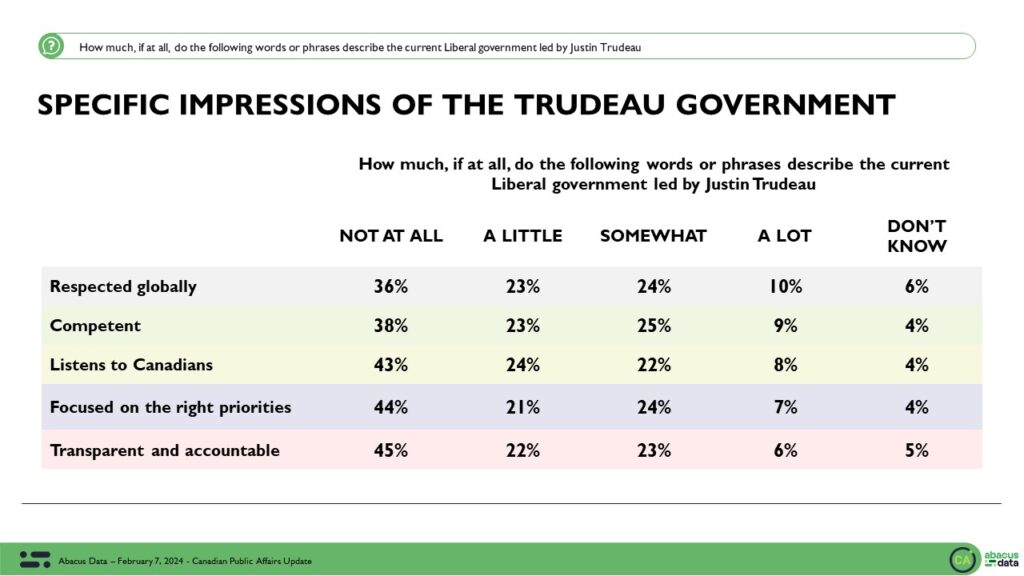
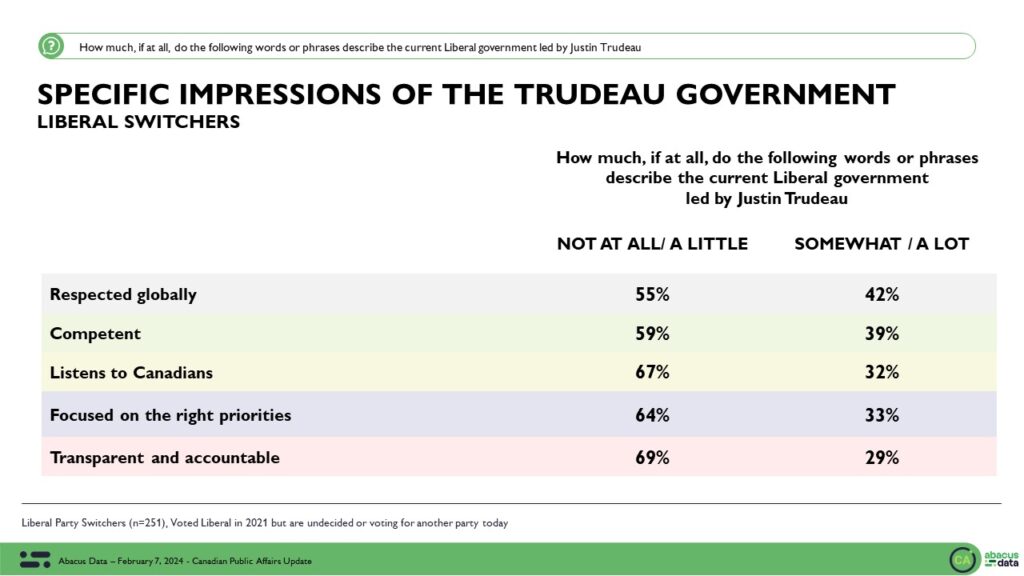
To underscore just how important these feelings are to the Liberal Party’s electorate fortunes, the table below reports the Liberal Party vote share based on how people respond to the question. As is clear, there’s a strong correlation between these variables and there’s almost no difference regardless of the attribute we test.
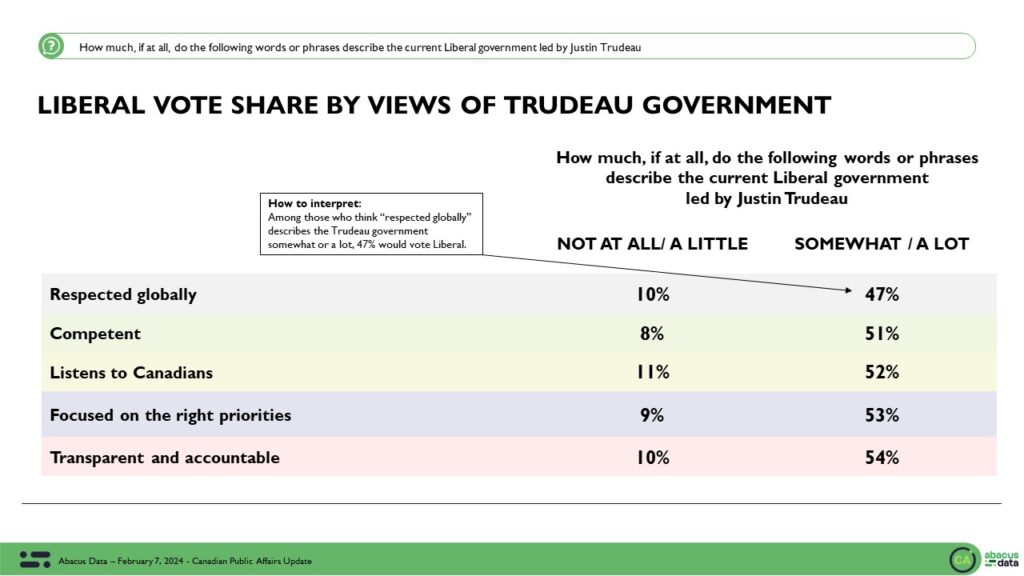
The Upshot
According to Abacus Data CEO David Coletto: “The political environment continues to be deeply troubling for the Liberals. An historically low approval rating along with an electorate who few see good things in the federal government has led to a 19-point Conservative lead.
As I’ve noted before, we are not experience a period of Poilievre-mania. The Conservative lead – built from those who haven’t voted Conservative in the past two elections – is more about a rejection of the Liberals than an embrace of the Conservatives. That still remains a liability for the Conservatives.
But as long as people remain fatigued with Trudeau and unhappy with how the federal government is handling the key issues they care about, the Liberals will fail to rebuild their past coalition.”
Looking to conduct polling or market research in 2024? Have budget left to spend before the end of March? Send Yvonne an email to connect with the Abacus Data team today!
Methodology
The survey was conducted with 2,398 Canadian adults from February 1 to 7, 2024. A random sample of panelists were invited to complete the survey from a set of partner panels based on the Lucid exchange platform. These partners are typically double opt-in survey panels, blended to manage out potential skews in the data from a single source.
The margin of error for a comparable probability-based random sample of the same size is +/- 2.00%, 19 times out of 20.
The data were weighted according to census data to ensure that the sample matched Canada’s population according to age, gender, educational attainment, and region. Totals may not add up to 100 due to rounding.
This survey was paid for by Abacus Data Inc.
Abacus Data follows the CRIC Public Opinion Research Standards and Disclosure Requirements that can be found here: https://canadianresearchinsightscouncil.ca/standards/
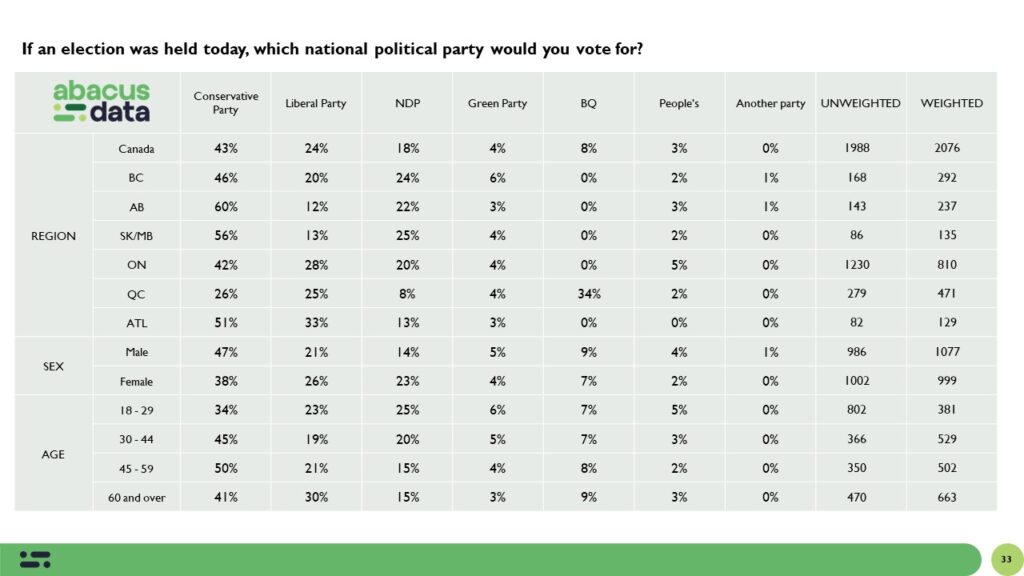
ABOUT ABACUS DATA
We are the only research and strategy firm that helps organizations respond to the disruptive risks and opportunities in a world where demographics and technology are changing more quickly than ever.
We are an innovative, fast-growing public opinion and marketing research consultancy. We use the latest technology, sound science, and deep experience to generate top-flight research-based advice to our clients. We offer global research capacity with a strong focus on customer service, attention to detail, and exceptional value.
We were one of the most accurate pollsters conducting research during the 2021 Canadian election following up on our outstanding record in 2019.
Contact us with any questions.
Find out more about how we can help your organization by downloading our corporate profile and service offering.
